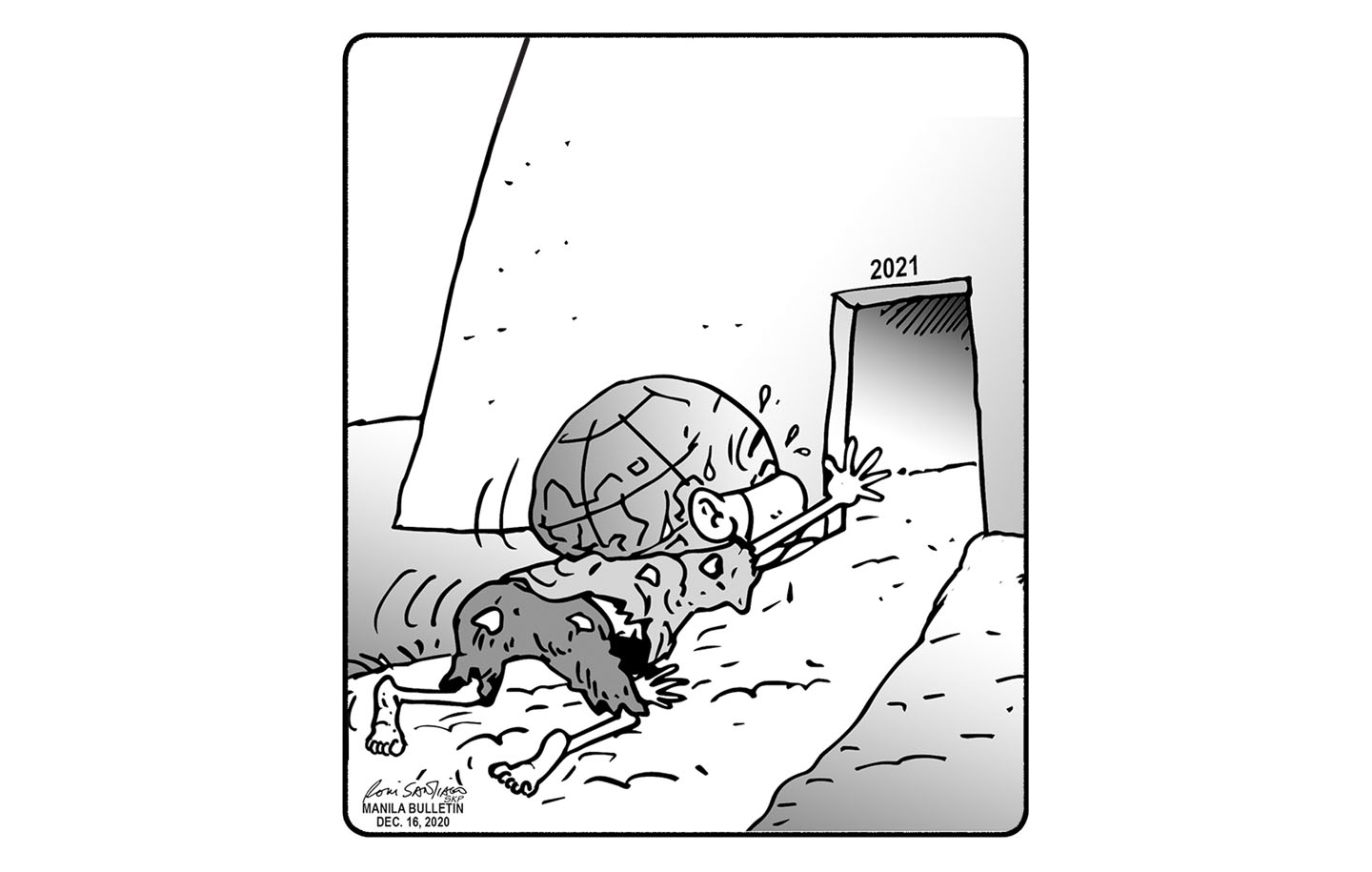WE are now in the last two weeks of December, 2020. After a year of the COVID-19 pandemic, the World Health Organization (WHO) said three regions of the world continue to have rising infections and deaths – Europe with a nearly 100 percent increase in deaths per week; the Americas, particularly the United States, 54 percent; and Africa, 50 percent.
But with the start of mass vaccinations in Britain and soon in the US, there is hope that the global situation will soon start improving. The production of vaccines against a disease that was completely unknown a year ago was an “astounding scientific achievement,” Michael Ryan, WHO emergencies director, said, considering that it usually takes years to develop a vaccine for a new disease.
The UK, US, and other rich nations have been able to buy the initial supplies of the new vaccines. The WHO has set up a scheme to speed up development of COVID-19 vaccines and distribute them evenly among 189 countries regardless of wealth.
The WHO-led scheme – COVAX – aims to secure vaccines for 20 percent of the population in each country by the end of next year. With WHO in COVAX is the Coalition for Epidemic Preparedness innovations. Further deals are planned to help the world’s poorer nations, the WHO said.
In the Philippines, cases continue to rise in some parts of the country. The OCTA Research Group of the University of the Philippines said this may be due to overcrowding in public places, lax implementation of health protocols, and “pandemic fatigue” – some people no longer following safety measures. “What we do now as individuals and citizens is more important in the next two weeks than any intervention the government does,” OCTA member Ranjit Rye said.
What we do now in the next two weeks will be in relation to the Christmas festivities that Filipinos traditionally carry out at this time of the year. World Health Organization chief Tedros Adhanom Ghebreyesus has urged people around the world to keep up their guard against COVID-19 in these last two weeks of December.
“The festive season is a time to relax and celebrate but celebration can quickly turn to sadness if we fail to take the right precautions,” he said. “As you prepare to celebrate over the coming weeks, please consider your plans very carefully. If you live in an area with high transmissions, please take every precaution to keep yourselves and others safe. That could be the best gift you could give – the gift of health.”
These last two weeks of the year are thus a critical time for the pandemic and the WHO emphasizes that a great deal of the responsibility rests on individuals. Our government has issued restrictions especially for the more critical areas, but ultimately, it all boils down to every individual who must do his part with three basic steps – wear a face mask in public, keep your distance, and constantly wash your hands – “Mask. Iwas, Hugas.”




